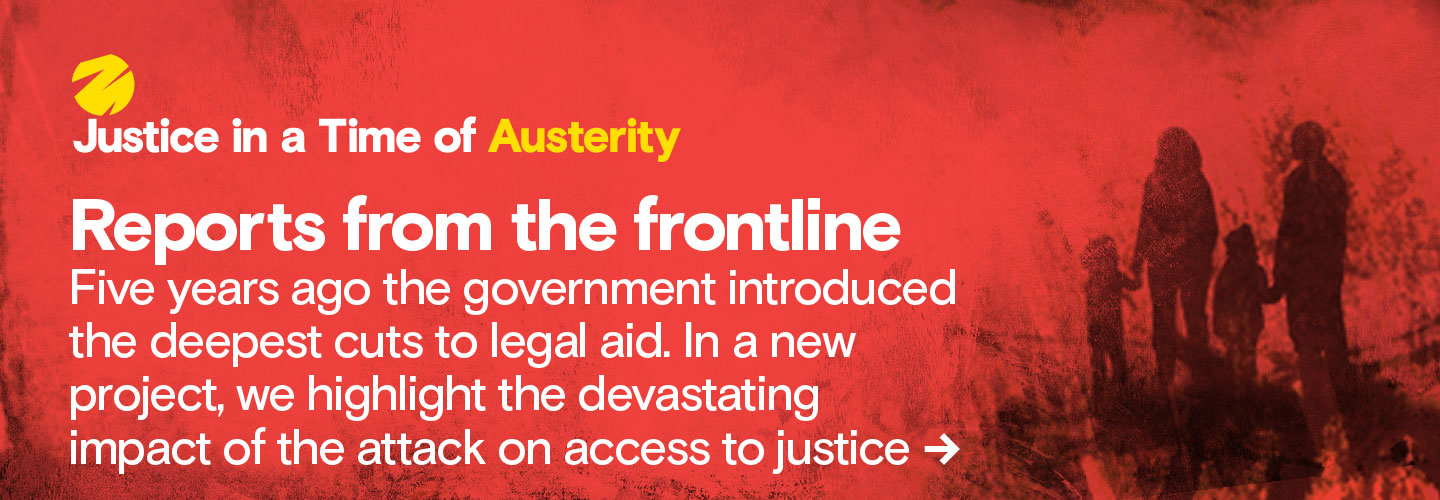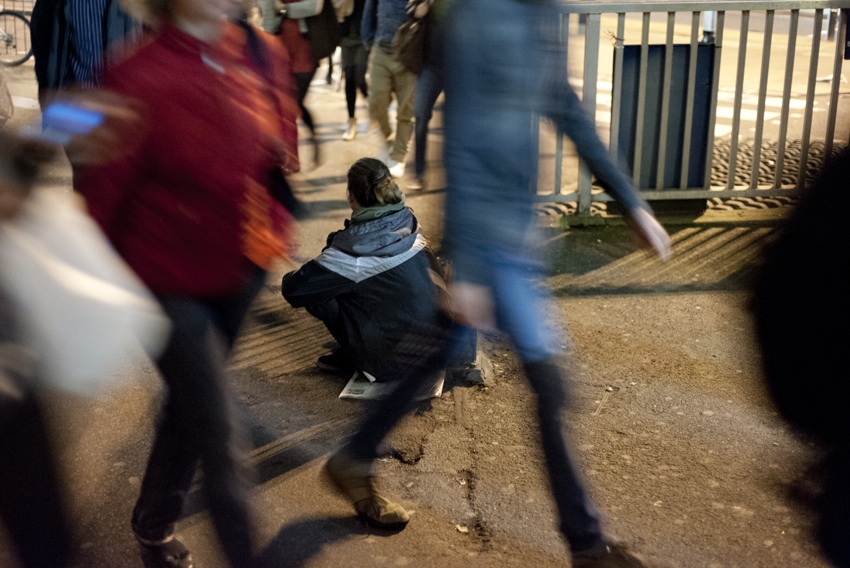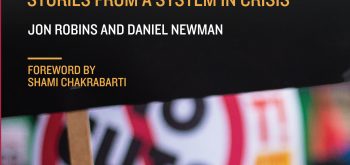The national provider of legal aid is to be taken to court over its refusal to help rough sleepers challenge local authorities’ use of power to curb anti-social behaviour. The challenge by the human rights group Liberty concerns local authorities’ use of public space protection orders (PSPOs) which criminalises activities that have a persistent and unreasonable detrimental effect on the quality of life of those in the area.
Liberty argues that the Legal Aid Agency (LAA) is not providing financial assistance to challenge PSPOs even if they ‘disproportionately and unjustifiably affect the poorest in society– insisting concerned locals are not directly affected by an order and that the agency has not been empowered by the Government to fund PSPO cases’. The group reckons that the LAA’s refusal to back the cases made it ‘near-impossible for homeless people cruelly targeted by PSPOs to enforce their basic human rights’.
-
Justice in a Time of Austerity is a collaboration between Jon Robins of the Justice Gap and Dr Daniel Newman of Cardiff University supported by the City law firm Ashurst. Over the next 12 months Daniel and Jon will be reporting on the impact of the 2013 legal aid cuts
-
Articles will appear here and on the LegalVoice site
‘Many local authorities are criminalising those in need, but the LAA’s position robs all but the wealthy of their ability to challenge council abuse of power. It is essential this case goes ahead so that anyone can challenge illegitimate PSPOs,’ commented Rosie Brighouse, Liberty’s lawyer.
Although recent guidance from the Home Office states that the orders should not be used to target individuals on the basis they are sleeping rough, Liberty argues that ‘overzealous councils’ have used PSPOs to criminalise ‘all manner of innocuous activities including gathering in groups of two or more people, lying down in public and swearing’. ‘Dozens have targeted rough sleepers, hitting people with fines they cannot possibly afford,’ the group says. The issuing of PSPOs not only criminalises the location of someone’s bed for the night, but also carries an on-the-spot fine of £100. If unable to pay, as is often the case with rough sleepers, the individual could face prosecution and a fine of up to £1,000.
Given the potential penalties and defiance of Home Office guidance, individuals, such as one Poole resident represented by Liberty in June, have sought to challenge the local authorities’ PSPOs, only to be told their cases do not qualify for financial assistance.
The LAA insists it has not been given the power by the government to fund any PSPO cases. Though a spokesperson said: ‘Legal Aid may be available for public space protection orders via exceptional case funding, subject to a statutory test to demonstrate a risk of breach of human rights, and the usual means and merits tests.’
Since 2010 there has been a 169% increase in the number of rough sleepers recorded in one snapshot Autumn night, as reported on the Justice Gap (here).
The long-awaited review of LASPO is currently underway and numerous organisations have already voiced their concerns including around the excpetional case finding regime as summarised (here).








